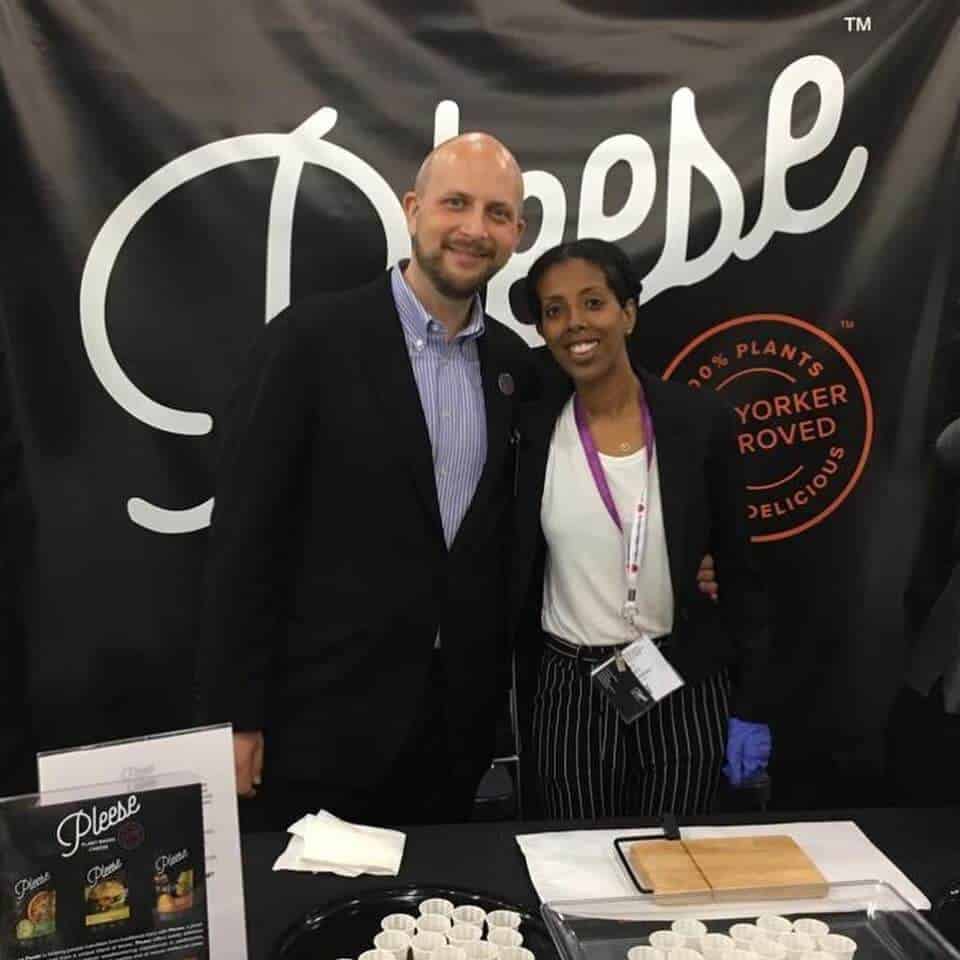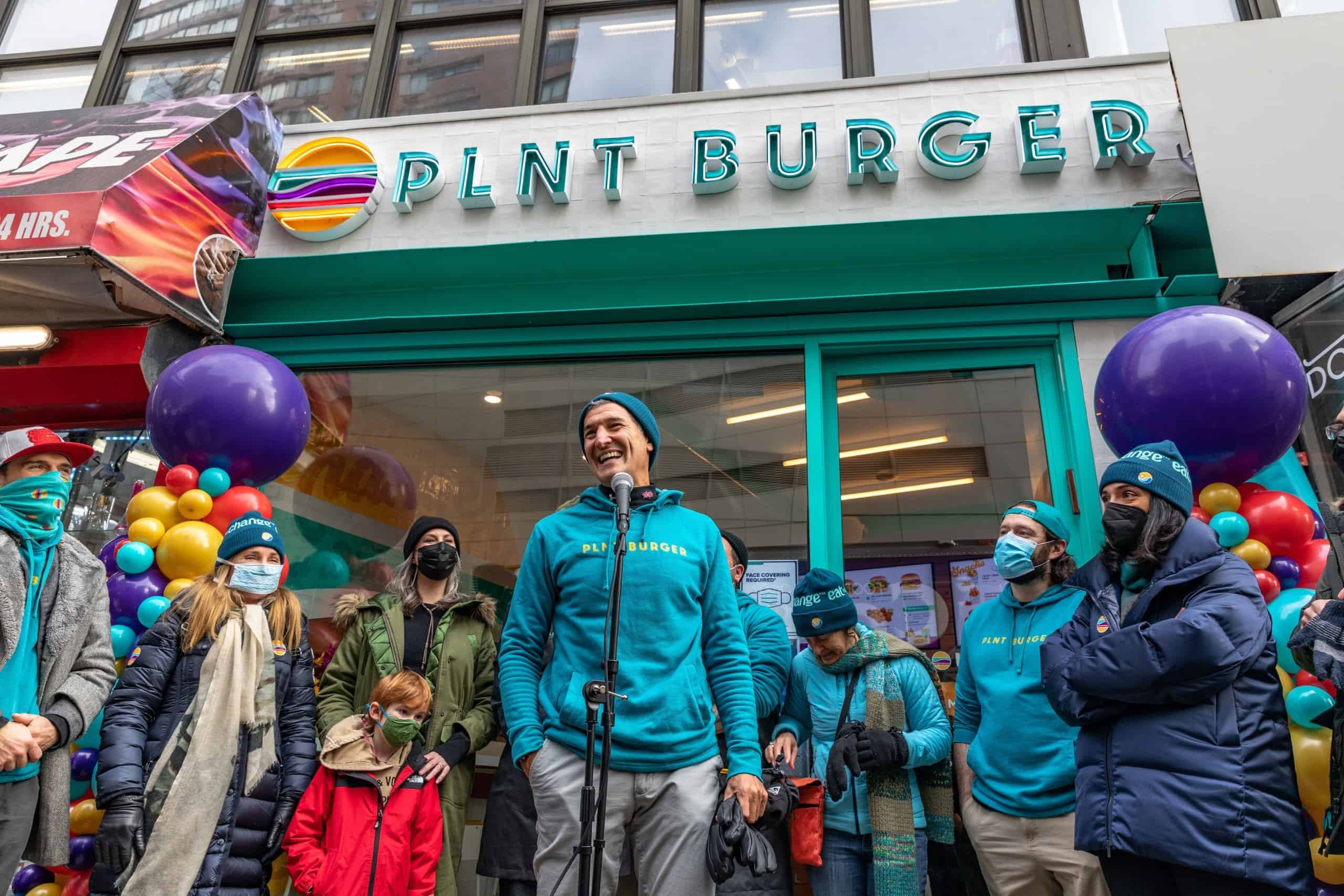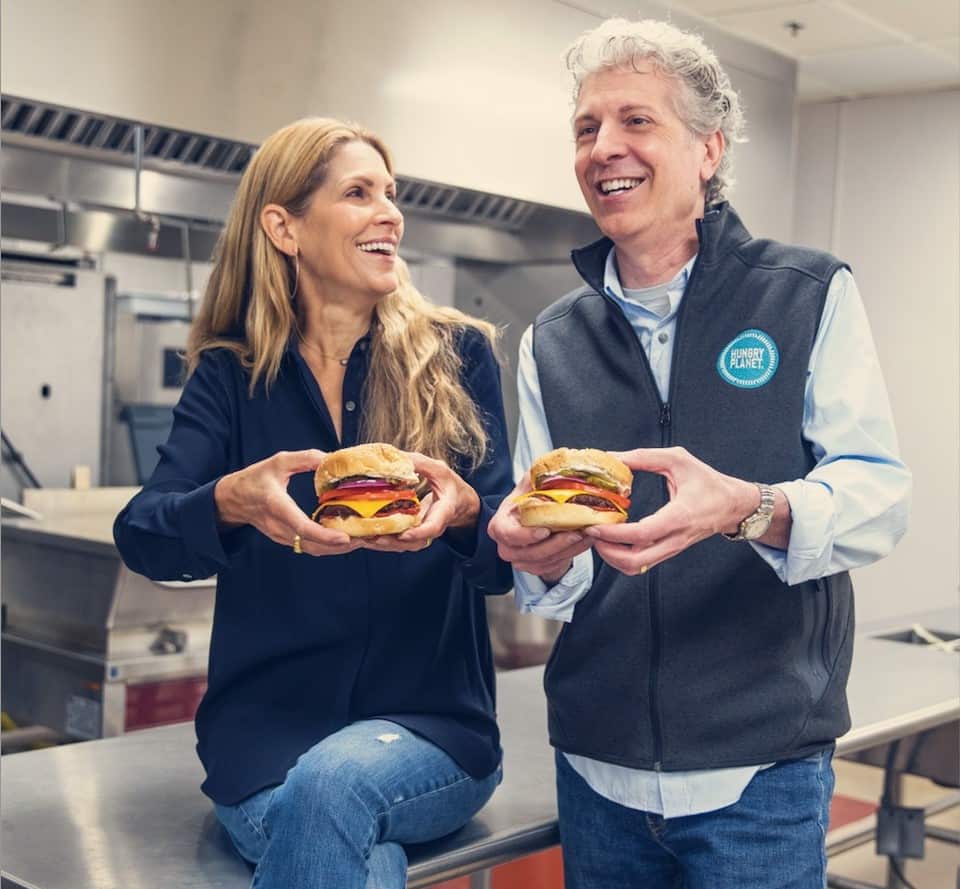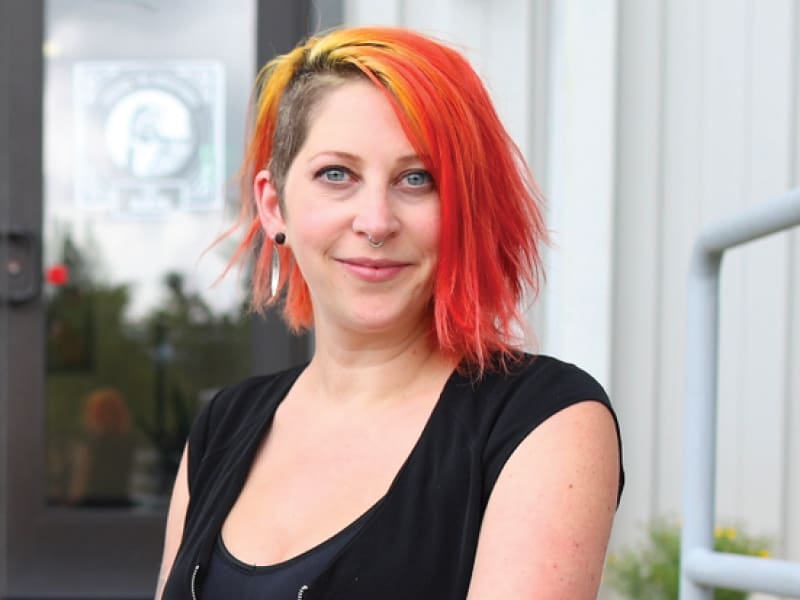Kobi Regev, CEO of Pleese Foods, Shares Entrepreneurial Advice from a Star-Studded List of Industry Legends – vegconomist

Kobi Regev is the co-founder and CEO of Pleese Foods Inc, a New York City food company that created Pleese® Plant Based Cheese. Founded in 2017, Pleese’s meltable cheese designed for pizzas is crafted from a proprietary blend of bean and potato proteins and is free from allergens such as soy, seeds, wheat, and nuts, as well as being OU Kosher certified, and recently gained nationwide distribution through Performance Food Group.
In this very special, and lengthy (well worth ten minutes of your time) contribution, Kobi speaks to a host of outstanding figures from the global vegan business scene, including Jennifer Stojkovic of VWS; Jason Rosenbaum, co-founder of Actual Veggies; Seth Goldman, co-founder of Honest Tea, Just Ice Tea and PLNT Burger; Joe Hill, co-founder of One Planet Pizza; Ofek Ron, Founder of Oshi; Jody Boyman, co-founder of Hungry Planet; Cullen Gilchrist, CEO of Union Kitchen; Russell Kohn, Principal of Pale Blue Dot; Aaditi Tamhankar, Investor at Bluestein Ventures; Sadrah Schadel, co-founder of No Evil Foods; Miyoko Schinner; Heather Mills; and Kim Anderson, Founder/Owner, PLANT CITY & PLANT CITY X.
You don’t know what you don’t know until you know: the unspoken guide to entrepreneurship
By Kobi Regev
Have you ever found yourself facing a challenge in life or business and thought, “Sh*t, I should have listened to my gut!”? If you’re an entrepreneur, that realization might sound all too familiar. Legends say hindsight is 20/20, but nothing stings quite like realizing you ignored your instincts on the path to your dreams. When I launched my company, I was brimming with excitement and hope, convinced I was on the fast track to success. I either couldn’t see the hurdles ahead or chose to disregard them entirely. Looking back on my early days, I’ll never forget the first lesson in business someone shared with me about the journey, simply stating, ‘You still don’t know what you don’t know.’
Now, after navigating the ups and downs of entrepreneurship, I understand the weight of those words. There are many challenges when running a business, which is why most people opt to work for someone else rather than themselves. But to some, there is something genuinely kismet and alluring about taking an idea they had and bringing it to fruition despite its many challenges. What people admire most about entrepreneurs is their unwavering confidence based on their belief that they can make their dreams a reality. Some might call it naivete, but it’s that very optimism that drives us to challenge the status quo.

Recently, I was inspired by an interview from the Glass Wall Syndicate about “Lessons Learned In Failure,” a six-part series, which at the time featured Sri Artham, founder of Hooray Foods. He discussed the closure of his company in a long-form interview, and hearing about his journey, from conceptualizing a homemade recipe to bringing it to market, struck a deep chord with me. Despite selling nearly a million dollars worth of product, he was forced to close shop on his dream. While listening in, it felt like Artham wished he could go back in time and share his hard-earned wisdom with his past self. That interview got me thinking about the lessons I’ve had to learn the hard way too.
In the business world, there’s no shortage of voices offering advice, each with their own stories of triumphs and setbacks. As my mentor Ricardo Cordero, CEO of Ricardo Food Group, Culinary Development Group, and Food Growth Venture would phrase it, “The Key to business is based on relationships, relationships, relationships.” Motivated by the wise words given to me at the beginning of my entrepreneurial career, I decided to reach out to my own network of founders, chefs, and investors to see what advice they would share with themselves given the chance to go back in time to the beginning of their journey.

Harvard Business School Professor, Restaurant Founder, and holder of multiple board seats, Andy Pforzheimer, told me he could probably write several books on the subject, but very kindly boiled down his advice to nine distinct and valuable points.
- Never put the people who created a problem in charge of fixing it.
- Never wait to see if a problem will resolve itself – it won’t.
- If you are asking yourself if you have the right person for the job, you already know the answer.
- You pay people to make your life easier. If they don’t make your life easier, stop paying them.
- “Culture” is a fancy word for how you do what you do, and why. It’s just a description of your behavior, not your values or your hopes. You can’t tell people what your culture is – they will tell you.
- Overspend on your lawyers.
- If real estate seems cheap, there’s a reason.
- Whatever you are willing to accept, that is your highest standard. Don’t put out food that is mediocre because you’re in a hurry, and then a week later tell your staff that you demand the best.
- With investors, character matters more than deal terms.

From reading Pforzheimer’s advice you can just feel there must be good stories behind each one of those answers. Every person who responded to my question was a treasure trove of wisdom and experience. Jennifer Stojkovic, general partner of Joyful VC, would have told herself simply, “Get the IP right the first time.” Lucia Grillo, TV Producer & Host: Lucia’s Vegan Lifestyle, eloquently expressed, “Even when you don’t know what you’re doing, you know what you’re doing. Keep taking those risks! Also, continue reaching out and cast a wide [vegan] net, the fun starts when you find your people.” Angela Yvonne, Lifestyle Journalist and Content Creator, wrote, “Building a brand in a niche is hard and will take time. Ensure you have a creative mentor to help guide you so you don’t feel alone. Observe to get inspiration but trust that the vision is real and that you should find delight in the small and big wins. Use frustration as motivation.”
“Nothing will ever be perfect, but eventually, you need to take that leap of faith and go for it.”
When I asked Jason Rosenbaum, co-founder of Actual Veggies, what advice he would have liked to give himself early on, he shared, “I started this business without any previous CPG experience so this is a good question because a lot of what I now know, I learned under the fire and from mistakes we made. One of the things I learned is to be patient when launching, but not too patient. Nothing will ever be perfect (your product, your plan), but eventually, you need to take that leap of faith and go for it. And that is what we did and we had to scramble to fulfill our first big order back in 2021 because of issues with our machinery. We figured it out and that really set that tone for our company that we would always find a way to make anything work.” I truly admire how far Actual Veggies has come in a short span of time.

I really wanted to know what Seth Goldman, co-founder of Honest Tea, Just Ice Tea and PLNT Burger, would share with himself, answering, “I would have encouraged myself to enjoy the ride more. I was a little too scared at the time to enjoy it!”
This is a similar sentiment expressed by Joe Hill, co-founder of One Planet Pizza, who said, “I’d make it part of our mission statement and business values to have as much fun as possible – both as founders and as a company! It took years to realize that there is a strong correlation between success and how much we’re laughing and enjoying our jobs. I’d also have started building up my network and my own personal brand much earlier on.”
“I would have encouraged myself to enjoy the ride more”
“My advice for myself would be to focus!” explained Ofek Ron, Founder of Oshi, “I spent too much time and money making a buzz around the company. I would go back and put all of my efforts only on creating the best product and scaling it. The buzz brought more money, but more money brought more commitments and I feel that less money would have been focusing us on product perfection and scale in earlier stages.”

The first time I tasted Hungry Planet’s plant-based meat alternative was at Gracie Mansion at a Memorial Day event hosted for the troops by NYC Mayor Eric Adams. People were amazed when I pointed out that the food they were eating was vegan, a true testament to their culinary-forward products. Jody Boyman, co-founder and CMO of Hungry Planet broke down the advice should have given herself into five parts.
- Being a plant-based meat entrepreneur is akin to flying the plane as you build it. To the degree, you can pace yourself or risk burnout.
- Surround yourself with mentors and team members who have as much – or preferably more – practical experience in food, including manufacturing and distribution.
- The three-legged stool in plant-based meats is taste/texture, superior nutrition and price parity. The last is nearly impossible without political will and intervention…
- Brand building is key but very expensive. Make sure you allocate enough budget to consistently differentiate your value prop.
- That being said, current economic reality means that retail is essentially an expensive brand-building exercise and thereby unsustainable for most companies that aren’t heavily capitalized.

Cullen Gilchrist, CEO of Union Kitchen shared, “I think that most people chase an idea when really they need to build a product that they are uniquely passionate about and uniquely able to win with. For us, that usually comes down to leveraging manufacturing to make something truly great. [The] Hardest lesson to learn is that most people who are telling you how to grow quickly, are wrong, and are selling a service. You should largely avoid this, pick partners carefully based on ability to get things done, have skin in the game, and focus on solving problems one at a time. There are no shortcuts to growth. Great product. Great passion. Great problem solving And build bit by bit.”
“A no today could become a yes tomorrow. Stay hungry.”
Russell Kohn, Principal of Pale Blue Dot, told me, “When I was getting started, I wish someone would have reminded me that ‘The perfect is the enemy of the good.’ You just need to get a product in front of customers, get their feedback, and then iterate. If you worry too much about getting the perfect product, the perfect label, the perfect timing, then you’re never going to bring a product to market.”
Kevin Plaut, Owner of Still Riding Foods, explains, “I came from the restaurant business where sales are instant. We make a sale and collect funds. Having transitioned into more of an accrual-type business, bringing in a sale is much different. Now with several years in manufacturing and sales, my advice to myself starting off first and foremost, do not get discouraged over not making a sale. Making a sale takes time and persistence, especially good ones. Know your markets and when they tend to consider new products or even when they tend to purchase. Timing is everything as they say. A no today could become a yes tomorrow. Stay hungry.”

Sadrah Schadel, co-founder of No Evil Foods and Board Member of the Plant-Based Food Association, really thought about my question and gave me a heartfelt response. She wrote, “Reflecting on my entrepreneurial journey, if I had the chance to whisper advice to my younger self at the start, it would be this: ‘Slow the heck down!’ I’ve learned that rushing headlong into every opportunity isn’t always the wisest path. It’s crucial to discern between the tempting ‘yes’ and the strategic ‘no.’
“Although, I’ve come to understand that this discernment is often only developed through time and experience. I’d urge myself to deeply consider the type of business I want to build, ensuring that growth wouldn’t compromise my vision or values, or impact my way of life in ways I wasn’t prepared for. It’s easy to get caught up in the allure of expansion, but preserving the essence of what I believe in is paramount. So, to my younger self and any other entrepreneurs out there, remember: it’s okay to take a breath, assess your direction, and ensure each step aligns with your core values and aspirations. And be sure you surround yourself with good people – it can make all the difference!”
When I reached out to Miyoko Schinner, renowned vegan chef, author, advocate, and entrepreneur, she wrote, “ It would be best to consider in what context I want my business to exist beyond just saving animals. How would I create a business that supports regional economies and doesn’t rob from the resources of developing countries, doesn’t destroy biodiversity, or the opportunities of others to participate in a holistic economic system. The focus on growth for the sake of growth to have a bigger impact serves investors, not veganism.”

When interviewing entrepreneurs for this article what really stuck out to me was authentic passion being the driving force behind their businesses. Heather Mills, iconic philanthropist, and owner of VBites Group, expressed it this way: “The advice I would give myself is to do exactly what you’ve done but never work with investors who don’t care with the same passion and are looking for long-term strategy goals, as they can destroy your business. Also, just because somebody has a university education don’t ever think they have common sense.
“Lack of common sense in business is why so many fail, followed by lack of caring and kindness to staff on the ground floor who are the foundation of your business and must always be treated with loving care and respect, something that fails so many businesses, with management just sitting in the boardroom not engaging or understanding what is happening on the Factory floor. My mistake was hiring expensive box-ticking management, taking a guilt-free director fat paycheck who I thought knew more than we did, but actually knew very little and just hid behind Big corporate structures ticking boxes overspending and destroying the business, since acquiring it [Vbites] back, I have turned it around in four weeks and made it profitable without the 14 management so the upside is it has given us a lot of confidence to realize business is about passion and hard work and learning by mistakes and looking after your staff, and not what degree you have.”

Kim Anderson, Founder/Owner, PLANT CITY & PLANT CITY X, General Partner/Co-Founder, EverHope Capital, and Founder GlobalMovieNights.com, likewise shared, “When starting out, treat everyone in your organization, suppliers, and customers with radical kindness! There will inevitably be bumps and dips in the road and you will need their support and care. It’s so much more fun this way! And – manage risk – look at every possible hole in the pool where the water can empty out and do everything you can to stop it up ahead of time.”
Bradford Kent, Head of Culinary for Pieology, is admired in his field because he is a perfectionist in everything he does. He wrote, “If I could go back in time and give my past self advice, it would be to trust your inner voice and to never give up fighting for anything (seriously anything) you want. Whatever you strive for in life you will get. It may not come as soon or as easily as you want but you will eventually get it…and because of this gift, set your sights high and then go back and re-set those sights about 5 steps higher. When I was 15 years old, I started my first business and I also set all my lifetime goals. I reached all those goals already and could have done so much more earlier in life had I fought harder and dreamed bigger.”
“It’s ok to start small and grow from there, it makes the journey more manageable along the way”
What I enjoyed the most about researching this story was the heartfelt responses I received. I have had my share of lessons on my journey so far, and there have been moments along the way that have felt like setbacks, but ultimately have made me resilient in the long run. For me, if I would offer myself some advice at the beginning of my journey, it would be, “Trust your gut when making decisions, it knows better than you. It’s ok to start small and grow from there, it makes the journey more manageable along the way. No matter how hard you try, you are going to make decisions that you ultimately regret. The key to your success is going to be learning from them, and moving on quickly. Don’t stop believing!” One last piece of advice I would share with myself after reading this would be, “It is really important to have fun when building something meaningful in your life.”
“Trust your gut when making decisions, it knows better than you”
I encourage you, dear reader, to reflect on what valuable lessons you gathered on your own journey. Your experiences, whether triumphs or setbacks, carry profound insights that could illuminate the path for fellow entrepreneurs. I invite you to share your wisdom with us because it serves as a beacon of knowledge and encouragement. Your anecdotes and reflections have the power to inspire and guide others as they navigate their own twists and turns. Let’s remember that the path of entrepreneurship is not solitary. It is a collective endeavor fueled by the experience, wisdom and camaraderie of fellow trailblazers. Thank you for joining me on this enlightening exploration, and I eagerly await the treasures of knowledge you’ll bring to our collective table.




